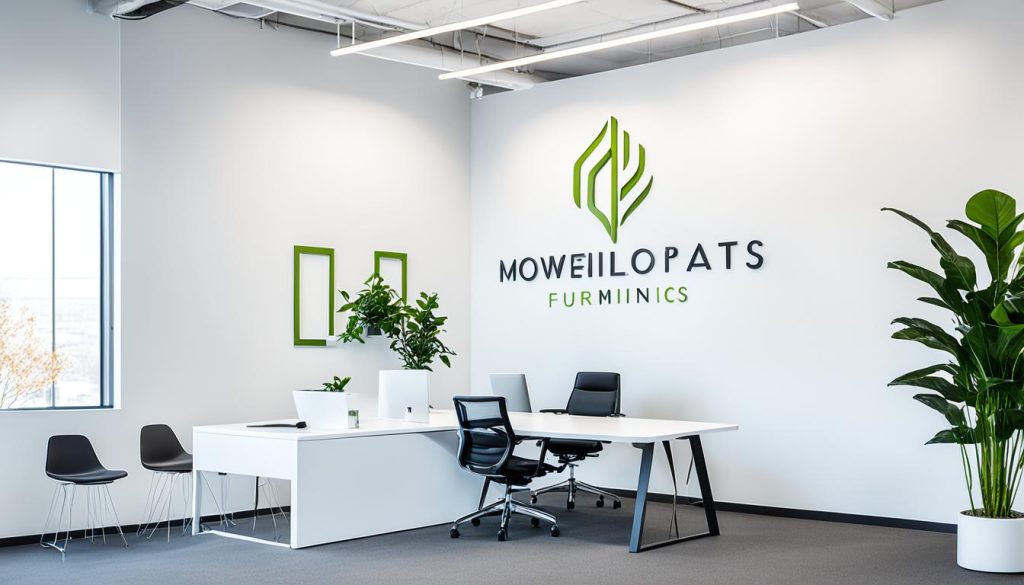Helen Keller once said, “Optimism is the faith that leads to achievement. Nothing can be done without hope and confidence.” This quote sums up the essence of starting a consulting business in Italy. This guide aims to offer valuable insights into the Italian consultancy world. It covers legal basics, strategic planning, and market analysis.
Italy is seeing a rise in demand for consulting services. This presents many opportunities for those ready to use their skills. Whether you want to focus on a specific area or work across different sectors, it’s crucial to know how to start a consulting business. This knowledge is key to making your mark in a competitive field.
This guide will be your go-to resource for starting your consulting career in Italy. It provides the knowledge and tools you need to begin with confidence. We’ll look at the steps and things to consider for a successful consultancy. This will help you make your dreams a reality.
Key Takeaways
- Understand the current consulting landscape in Italy.
- Identify and evaluate your niche for greater success.
- Comprehend essential legal requirements for your business.
- Develop a comprehensive business plan.
- Employ effective marketing strategies.
- Stay informed about pricing strategies and packages.
- Utilise technology to enhance service offerings.
Understanding the Consulting Landscape in Italy

The consulting sector in Italy is changing fast, showing big growth. There’s a growing need for consultancy in areas like management, IT, and finance. Companies now see the worth of expert advice, leading to a rise in consultancy work.
Big names in Italian consulting are changing how they work to fit what clients need now. The field includes both local and global firms, each with their special areas. They must keep innovating to stay important in the market.
Culture plays a big part in how business works in Italy. Knowing these cultural differences can make a big difference in how well consultants do their job. For example, building trust and long-term relationships with clients is key, unlike in some other places.
Recent reports show the Italian market is getting more varied. There’s a big push in digital transformation consulting, offering chances for new and old firms to grow and change.
Identifying Your Niche in the Consultancy Sector

Finding a special area in consultancy is key to a successful career. Each area needs its own skills and knowledge to meet certain market needs. Let’s look at some main areas in consultancy:
- Management consulting
- Human resources consulting
- Marketing consulting
- Financial advisory
Looking into these areas helps you see which fits your skills and experiences best. Researching the market in Italy shows where there are gaps. These gaps could be where new consultants can make a big impact.
Doing thorough market research is vital. It means understanding trends, what competitors offer, and what customers want. With this knowledge, new consultants can offer exactly what businesses need. This confirms their chosen consultancy niche.
Essential Legal Requirements for Starting a Consulting Business

Starting a consulting business in Italy means you must follow certain legal steps. It’s important to know these to enter the market smoothly. First, you need to choose how your business will be structured. You can be a sole trader or set up a limited liability company (SRL).
Being a freelancer can be cheaper at the start and easier on taxes. But, an SRL offers more protection for you personally. It requires more paperwork and reporting, though. Getting advice from a lawyer can help you decide what’s best for you.
Following the law is crucial. You must understand taxes, get the right permits, and keep good records. Italy takes compliance seriously, and not following the rules can lead to big fines. Make sure to talk to local officials to meet all your legal duties and keep up with new laws.
Getting your consultancy right from the start is key to success. Make smart choices about registering your business and following the law to avoid problems later.
Developing a Business Plan for Your Consultancy

A well-structured business plan is key for any consultancy looking to grow and work more efficiently. It acts as a roadmap, setting out the steps needed for your business’s future. It covers your vision, mission, and goals. Adding important details makes your plan realistic and doable.
Key Components of a Successful Business Plan
When making your business plan, include key parts for clarity and direction:
- Executive summary
- Business objectives
- Service offerings
- Marketing strategy
- Financial plans
Each part is crucial for understanding your consultancy’s potential and planning for the future.
Market Analysis and Competitive Landscape
Understanding the market and the competition is essential. This means looking at trends and challenges in your area. Knowing who your audience is and what they need helps you stand out. Looking at competitors shows where you can improve your services.
Setting Up Your Business Structure in Italy

Creating a strong business structure is key for any consulting business in Italy. You have many options, each with its own pros and cons. Knowing these can help you make a choice that fits your goals.
Common business structures include:
- Sole Proprietorship: This lets you control the business fully. It’s simple and has low start-up costs but means you’re personally liable for debts.
- Partnership Models: This is for two or more people sharing profits and duties. General partnerships are flexible but risky because partners are personally liable. Limited partnerships reduce this risk, as limited partners aren’t liable beyond their investment.
- Limited Liability Company (LLC): It combines a corporation and a partnership’s benefits. Owners have limited liability like a corporation but pay taxes and have flexibility like a partnership. This makes it a favourite in the consulting world.
When picking a business structure in Italy, think about:
- Liability: Consider how much risk you want to take on and choose a structure that limits your liability.
- Tax Implications: Know how each structure affects your taxes, as this can change how much you make.
- Operational Complexity: Look at the administrative work each model needs to make sure it fits your capacity.
The best choice depends on your business goals, money situation, and how much risk you can handle. A well-planned business structure is crucial for success in Italy’s consulting world.
Choosing the Right Location for Your Consulting Business

Starting a consulting business means picking the right place. Many things affect this choice, especially in Italy. Cities in Italy offer both chances and challenges for consulting. Picking a city can greatly change your business’s success.
In Italy, cities like Milan, Rome, and Bologna are great for business. Each city has its own benefits:
- Milan: It’s the financial centre, offering lots of networking chances and big clients.
- Rome: The capital has both national and international businesses, drawing in a wide range of consulting needs.
- Bologna: It’s famous for its entrepreneurial vibe, hosting many startups and new companies.
When looking at Italian cities for consulting, think about how easy it is for clients and staff to get there. Places with good transport links make meeting clients easier. Also, knowing your competitors is key; it helps you plan better. Look at how close you are to potential clients to help grow your business.
Marketing Strategies for Your Consulting Services

It’s vital to grow your client base with effective consulting marketing strategies. A mix of online and offline tactics works best. By using different marketing channels, you can stand out in the market.
Building an Online Presence
A professional website is key to your online image. Make sure it mirrors your brand and highlights your skills. Think about these points:
- Use search engine optimisation (SEO) to be more visible online.
- Add valuable content like case studies and testimonials to gain trust.
- Use a blog to connect with potential clients by solving common industry problems.
Social media is also crucial. It helps spread the word and connect with more people. Share interesting content regularly to build trust and a strong reputation.
Networking and Client Acquisition Techniques
Networking is a strong way to find new clients. Go to industry events to meet people who might need your services. Here’s a strategy:
- Make connections that lead to referrals or partnerships.
- Join groups or associations in your field.
- Use online forums to show your knowledge and help others.
Using these methods will help you find new clients and grow your consulting business.
Understanding Pricing Strategies and Packages for Consultancies

Setting the right prices is key to drawing in clients and keeping a consulting business going. Consultants look at different ways to charge, like by the hour, for specific projects, or based on the value they add.
Charging by the hour is flexible but might not show the full worth of the work done. Clients might see it as not fully committed to their goals. Project-based fees are clearer about costs upfront, giving clients a set budget for a certain result.
Value-based pricing ties fees to the outcomes and benefits for the client. It means the consultant’s earnings match the client’s success. This method needs a good grasp of what the client needs and how the consultancy can help.
Looking at what others charge is crucial for setting fair prices. It helps find a balance between being competitive and sustainable. Important things that affect pricing include:
- Experience and expertise of the consultant
- Complexity of the services offered
- Industry norms and standards
- Client budget and expectations
Creating detailed consultancy packages can also improve what you offer. These packages let clients pick services that fit their needs best, with clear pricing. Talking about the perks of each package can make clients more engaged and happy.
Building a Strong Brand Identity for Your Consultancy

In the consultancy world, having a strong brand identity is key. It helps you stand out from others. Clients look for a clear and appealing image that matches their needs. A strong brand identity consultancy can boost your business and build trust and loyalty.
To make a good brand identity, think about these important parts:
- Logo Design: A memorable logo is the base of your brand’s look. It should show your values and what your consultancy is all about.
- Brand Messaging: Create a strong story for your brand. This story should share your mission, vision, and what makes you different.
- Consistency: Make sure your branding is the same everywhere. This means on your website, social media, and in your marketing stuff.
- Target Audience Understanding: Knowing who your audience is lets you make your brand more relatable to them.
A clear brand identity makes your consultancy more visible and credible. By focusing on these key areas, you can build a brand that shows your strengths and draws in clients looking for your expertise.
Utilising Technology to Enhance Your Consulting Offerings

Technology has changed how consultants work. It lets them work more efficiently and talk better with clients. Digital tools make managing projects and talking to clients easier.
Many software solutions for consultants have great features for managing projects and working together. Tools like Trello and Asana track projects and tasks in real-time. For managing customer relationships, Salesforce gives insights into what clients need.
Tools like Zoom and Microsoft Teams make it easy to talk with clients from anywhere. These apps help overcome distance, making sure services reach everyone. By using these tools, businesses stay ahead in a fast-changing market.
As consulting changes, technology’s role grows. Using new tech helps firms improve their services and add great value for clients.
Gaining the Necessary Certifications and Credentials

In the competitive world of consultancy, having recognised certifications boosts a consultant’s trustworthiness. These qualifications prove expertise and build client confidence. A strong set of certifications can make a consultant stand out in various fields, drawing in potential clients and opening doors for partnerships.
Throughout Various Consulting Disciplines
There are several top certifications across different consulting areas:
- Project Management Professional (PMP) – This certification is highly valued in project management. It shows a person can manage projects well.
- Chartered Institute of Personnel and Development (CIPD) – Key for those in human resources, this qualification shows a deep HR knowledge and ethical standards.
- Certified Management Consultant (CMC) – This top certification confirms a consultant’s professional status and dedication to management consultancy excellence.
Getting these qualifications can really boost a consultant’s appeal in the market. It makes them more attractive to clients. Investors and companies often look for consultants with the right certifications. This directly affects how well they work together and the results they achieve.
Financial Management for Your Consulting Business

Managing your finances well is key to keeping a consulting business going. Using top financial management tips helps consultants stay profitable and keep their business strong. Important parts include making good budgets and managing cash flow well.
Starting with a detailed budget is a good first step. It helps you plan your finances by listing all costs, setting income goals, and predicting future money needs. Checking this budget often lets you see how you’re doing and make changes if needed.
For consultants, managing cash flow is very important. Because you might not always get paid regularly, it can be tough. To keep cash flow steady, make sure to send out invoices on time and have clear payment rules. Also, having some cash saved up can help during slow times.
But it’s not just about budgets and cash flow. Keeping your finances accurate is crucial to know how your business is doing. Using good accounting software can make tracking easier. And getting advice from a financial expert can help make sure you’re making smart money choices.
Preparing for Challenges in the Italian Consultancy Market

The Italian consultancy market has its own set of challenges. Consultants deal with things like slow bureaucracy, cultural differences, and tough competition. Economic ups and downs make these challenges even harder. It’s vital for experts to handle these issues well.
- Emphasise adaptability. Being flexible helps consultants stay on top of changes.
- Engage in continuous learning. Keeping up with trends and rules makes consultants more resilient.
- Strengthen client relationships. Trust and good connections lead to more work and referrals.
- Nurture cultural awareness. Knowing local customs makes working with clients easier.
Using these strategies, consultants can overcome current challenges and grow stronger in Italy’s competitive market.
Scaling Your Consulting Business for Future Growth
Scaling a consultancy means growing in a way that’s both sustainable and efficient. One key way to do this is by adding new services. This could be by introducing new lines or improving what you already offer. By doing this, you can draw in more clients and make more money.
It’s crucial to research the market to see what clients need. Then, you can adjust your services to meet those needs. This helps you stand out and attract more clients.
Another way to grow is by reaching new markets. This might mean going into new areas or working with different types of businesses. Using data can help find areas that need your skills the most. Working with other companies can also help by making you more visible and trusted.
Having a plan for long-term growth is key to keeping your consultancy moving forward. Regularly checking how your business is doing helps you spot what’s working and what’s not. This keeps you quick to adapt and competitive in a fast-changing market. Scaling your consultancy means being open to new ideas, reaching out to new markets, and always looking to improve.









